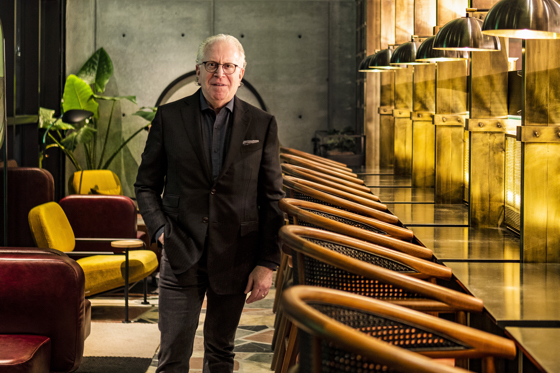In October, HOTELS published a story about how New York City-based real estate developer Lightstone and its President Mitchell Hochberg are making their growing Moxy hotel brand portfolio work in New York City, with properties in neighborhoods including Times Square and Chelsea. During the Hochberg interview, we also discussed some of the macro conditions surrounding the hotel industry and more specifically in New York City. Here is what Hochberg had to say.
HOTELS: Why is the New York hotel market struggling with profitability?
Mitchell Hochberg: I’m not sure that anybody has a true handle, although there are some obvious theories about why it’s flat and why we all thought we’d do a little bit better this year. You hear the obvious – that there is less foreign inbound business because of the Trump administration policies. We are certainly seeing some of that, but it’s hard to translate it directly into occupancy numbers. We are definitely seeing a little bit less group business, corporate group in particular. And I think you scratch your head about that, too, because when you see the economy so strong you would think that wouldn’t be something that would be off.
H: Is flat performance in New York City related to supply?
MH: Well everybody says supply is a component of it and it probably has some impact… From a supply point of view, we’ve been more impacted in the Times Square market than we’ve been in the Chelsea market. But I definitely don’t think it’s all supply-related. Overall, our data shows year-to-date (through July) that RevPAR is down close to 4% in the city as a whole.

H: How concerned are you about the Airbnb effect?
MH: It’s funny, we’re always watching it and we have not been able for our product to see any correlation to any impact on occupancy or rate as a result of Airbnb.
From a price point of view, Airbnb to a certain extent almost helps us because we are somewhat competitive. But the Airbnb you’re going to get for the same price is probably in Queens. And you’re going to have to take two subways, walk down a dark block, walk up a flight of stairs, open a door without a doorman and maybe get surprised as to what you’re going to find.
Where with us at Moxy, you might be getting a micro room, but you’re right in the middle of Manhattan. You have the certainty of product because it’s a Marriott product. You’re getting your Bonvoy points. There’s security at the door and there are four restaurants and bars. So, the typical traveler when they’re confronted with the choice, it’s a natural choice unless you’re staying for an extended time or traveling with a big family.
H: What else is a part of Lightstone’s investment strategy?
MH: We actually started our own lending platform… What you’re seeing across the board, not just in hospitality, is that the equity returns on a lot of deals to a sophisticated investor are not attractive enough on a risk-adjusted basis. So a lot of investors, particularly a lot of the private equity funds, have started to gravitate toward debt because on a risk-adjusted basis they’d much rather lend money whether they’re making a 10% return on a loan versus a 12% or 13% return on an equity deal. It doesn’t make sense, and that’s one of the reasons we started doing more debt.
With us, if you take a look at the risk spectrum, you would say that the debt is the least risky, buying stabilized assets is number two, and then developing is number three. We’re seeing more opportunities at the two ends of the spectrum. Right now, we’re seeing more opportunities in value creation through development. Though it’s riskier, we’re still getting the returns that we think are justified. And we see it on the debt side right now in terms of looking at money putting out versus stabilized equity.
H: What is your bigger picture outlook for the next 12, 18 months?
MH: I think we’re looking at things fairly steady for the next 12 or 18 months. We’re not seeing much happening either in terms of our markets and our properties where there’s going to be significant growth in RevPAR, and we’re not seeing anything where we feel the markets are going to start backtracking in RevPAR.

